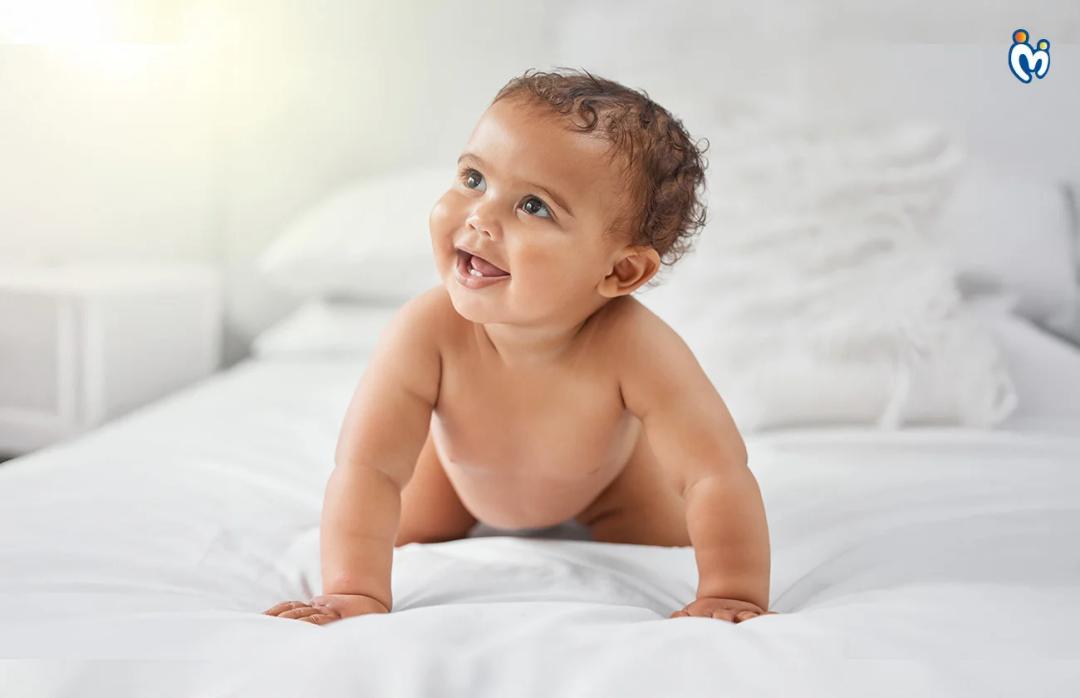Caring for Your Baby During Winter
Taking care of a baby can feel overwhelming in any season, but winter brings its own challenges. Cold weather adds a warm and woolly layer of worry for new parents.
If you are welcoming a newborn during winter, concerns about cold temperatures, slippery roads, infections, and chilly winds are natural. Many parents feel tempted to stay indoors until spring arrives.
Winter also raises special concerns about protecting your baby’s delicate skin and their still-developing immune system. The good news is that with the right precautions, you can keep your baby safe, warm, and comfortable during their first winter.
Follow the Vaccination Schedule
- Vaccinations are important in every season, including winter.
- Always follow your pediatrician’s advice and ensure your baby receives vaccines on time.
- Regular vaccination helps protect your baby from seasonal infections and illnesses.
Prevent Dry Skin
A newborn’s skin barrier is much weaker than an older child’s. This makes babies more prone to dry, itchy, and flaky skin during winter. Cold air, low humidity, and indoor heating worsen the problem.
To protect your baby’s skin:
- Bathe your baby only once every three days
- Use water at 37°C
- Keep bath time under 5 minutes
- Older babies can bathe for up to 10 minutes, but no longer
After bathing:
- Gently pat the skin dry
- Apply a fragrance-free moisturizer
- Thick, ointment-like moisturizers work better than creams
- Reapply often to lock in moisture
Continue Massage and Oil Application
Cold and dry winter air removes moisture from your baby’s skin. Regular massage helps keep skin soft and hydrated.
Massage benefits include:
- Prevents dryness and flakiness
- Keeps inner tissues moisturised
- Helps strengthen bones
- Massage your baby at least twice daily using Warm mustard oil or Coconut oil
Do Not Avoid Sunlight
Sunlight is the best natural source of vitamin D. It helps:
- Strengthen bones
- Boost immunity
- Warm the baby’s body
- Reduce infections
Spend some time in the sun after bathing or changing your baby’s clothes.
Maintain the Right Room Temperature
Keeping the room temperature stable is essential in winter.
- Ideal room temperature: 25–28°C
- Babies have sensitive skin and struggle with temperature changes
- Cold rooms can cause hypothermia
Use a thermometer and regularly monitor the room temperature.
Limit the Use of Room Heaters
Avoid excessive use of room heaters.
Problems with heaters:
- Dry out indoor air
- Increase skin dryness
- Cause breathing discomfort
Safer options:
- Use oil-filled radiators
- Add a humidifier if needed
Check your baby’s warmth by touching their belly with the back of your hand. Parents should keep a thermometer at home and know how to use it.
Choose Layered Clothing
Overdressing can make babies uncomfortable and irritable.
Follow this simple rule:
- Dress your baby in one extra layer than what you are wearing
Layers help retain warmth without overheating.
Use Comfortable Fleece Clothing
Avoid bulky clothing that restricts movement.
Do:
- Use soft fleece or cotton clothing
- Allow free movement of arms and legs
At night:
- Use thin gloves and socks
- Adjust clothing based on room temperature
Avoid Thick Blankets
Heavy blankets can be risky.
Problems with thick blankets:
- Restrict movement
- Can cover the baby’s face
- Increase breathing risk
Instead:
- Use a thin blanket
- Maintain a comfortable room temperature
Use a Humidifier
Winter heaters dry out the air and skin. Dry air can also cause breathing problems.
A humidifier:
- Adds moisture to the air
- Prevents dry skin
- Reduces respiratory discomfort
Keep Saline Drops Handy
Nasal secretions become thick during winter. This can make breathing difficult for babies.
- Use saline nasal drops if breathing becomes uncomfortable
- Always consult your pediatrician before use
Limit Outdoor Exposure
Winter is a high-risk season for infections.
To protect your baby:
- Keep newborns indoors as much as possible
- Avoid crowded places like malls and gatherings
- Reduce exposure to coughing and sneezing adults
Practice Kangaroo Mother Care
Kangaroo care involves skin-to-skin contact with the mother.
Benefits include:
- Maintains body temperature
- Boosts immunity
- Improves breastfeeding
- Reduces infections
This method is especially helpful for premature babies.
Continue Breastfeeding
Breastfeeding is one of the best ways to protect your baby in winter.
Breast milk:
- Strengthens immunity
- Provides warmth and comfort
- Protects against illnesses
Feed frequently to keep your baby nourished and cosy.
Maintain Proper Hygiene
Babies are exposed to germs mainly through caregivers.
Follow these hygiene steps:
- Wash hands before holding the baby
- Sterilise hands if needed
- Ask visitors to wash hands before touching the baby
Introduce Soups When Age-Appropriate
Once your baby is ready for semi-solids, winter is a good time to introduce soups.
Benefits of soups:
- Provide warmth
- Easy to digest
- Boost immunity
You can add:
- Pureed vegetables
- Mashed chicken
- Crushed garlic for warmth and protection
Final Words
Maintaining the right balance between warmth and comfort is key during winter.
Check your baby’s:
- Neck and ears for overheating
- Chest or back for cold
If overheated:
- Remove a layer
- Feed breastmilk or formula
- Use lukewarm water
If too cold:
- Add a layer
- Wrap in a warm blanket
- Offer warm milk
Always consult your pediatrician if symptoms persist.
Enjoy your baby’s first winter with confidence and care.
FAQ's
Q. How can I keep my baby warm and comfortable during winter?
Ans.Keeping your baby warm in winter is about smart layering, not heavy clothing. Dress your baby in one extra layer than what you’re wearing and check their chest or back for warmth. This helps maintain comfort without overheating or causing irritation.
Q. How often should I bathe my baby in winter months?
Ans.During winter, bathing your baby too often can dry out sensitive skin. Bathing once every two to three days using lukewarm water is ideal. Short baths followed by a thick, fragrance-free moisturizer help lock in moisture and protect your baby’s delicate skin barrier.
Q. Why does my baby’s skin become dry in winter?
Ans.Cold air, low humidity, and indoor heating strip moisture from a baby’s delicate skin. Since newborns have a weaker skin barrier, dryness and flakiness are common. Regular moisturizing, gentle bathing, and avoiding dry air can help keep your baby’s skin soft and healthy.
Q. Are room heaters safe for babies during winter?
Ans.Room heaters can be used safely if handled correctly. Oil-filled radiators are preferred as they don’t dry the air. Excessive heater use can cause skin dryness and breathing discomfort, so maintaining humidity and proper ventilation is important for your baby’s comfort.
Q. What is the ideal room temperature for babies in winter?
Ans.The recommended room temperature for babies in winter is between 25°C and 28°C. Maintaining a stable temperature helps prevent cold stress and overheating. Using a thermometer ensures your baby stays comfortable, especially during sleep and nighttime hours.
Q. Can sunlight benefit babies during winter?
Ans.Yes, sunlight provides natural vitamin D, which supports bone strength and immunity. Gentle sun exposure after bathing or changing clothes helps keep your baby warm and healthy. Always avoid harsh sunlight and limit exposure to safe, short durations.
Q. Is oil massage important for babies in winter?
Ans.Oil massage is especially important during winter. It keeps your baby’s skin moisturized, improves circulation, supports bone strength, and provides warmth. Using warm coconut or mustard oil twice daily helps prevent dryness and keeps your baby relaxed and comfortable.
Q. How can I protect my baby from winter infections?
Ans.Protect your baby by maintaining hygiene, avoiding crowded places, and keeping vaccinations up to date. Regular handwashing, limited visitor contact, and breastfeeding help strengthen immunity. Keeping your baby warm and comfortable also reduces the risk of winter-related illnesses.
Q. Are thick blankets safe for baby sleep in winter?
Ans.Thick blankets are not recommended for babies as they can restrict movement or cover the face during sleep. Thin blankets or sleep sacks are safer alternatives. Maintaining a warm room temperature ensures your baby sleeps comfortably without overheating or breathing risks.
Q. What foods help keep babies warm during winter?
Ans.Once babies are ready for semi-solids, warm soups made with pureed vegetables or chicken are ideal winter foods. They provide warmth, nutrition, and comfort. Breastmilk or formula should remain the primary nutrition source during the first year of life.
















